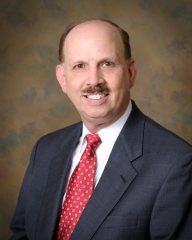 By George F. Indest III, J.D., M.P.A., LL.M., Board Certified by The Florida Bar in Health Law
By George F. Indest III, J.D., M.P.A., LL.M., Board Certified by The Florida Bar in Health Law
Health Integrity, LCC, was named the Zone 4 Program Integrity Contractor (ZPIC) for the Medicare and Medicaid programs. As the ZPIC for Zone 4, Health Integrity has been performing benefit integrity activities aimed to reduce fraud, waste and abuse in Medicare and Medicaid data matching programs.
A ZPIC is a business entity that contracts with Medicare and Medicaid and works with state Medicaid agencies, the Centers for Medicare and Medicaid Services (CMS), and law enforcement officials to identify improper billing and utilization patterns throughout Zone 4.
ZPIC Zone 4 includes Texas, Colorado, New Mexico, and Oklahoma.
What is a ZPIC?
ZPICs are private companies contracted by the CMS, used to conduct audits for Medicare and Medicaid overpayments. ZPICS also detect, investigate and gather evidence of suspected fraud and abuse to be turned over to the Office of Inspector General (OIG) for criminal or civil prosecution.. When you hear “ZPIC,” think “fraud.”
ZPIC audits are initiated by:
1. Whistleblower or qui tam lawsuits,
2. Probe audits,
3. Other audit agency findings,
4. Beneficiary/patient complaints,
5. Hotline complaints, or
6. Complaints and notices from other government programs.
How to Handle a ZPIC Audit.
When a physician, medical group or other health care provider receives a notice of an audit and site visit from a ZPIC, things happen fast with little opportunity to prepare. A ZPIC will routinely fax a letter to the practice shortly before the end of a business day the day before a site visit/audit to that practice. Auditors will request to inspect the premises, will photograph all rooms, equipment, furniture, and diplomas on walls. They will usually request copies of several patient records to review later. They will request copies of practice policies and procedures, treatment protocols, all staff licenses and certifications, drug formularies, medications prescribed, and medications used in the office. ZPIC auditors will inspect any medication/narcotic lockers or storage cabinets and will request drug/medication invoices and inventories. You will usually be contacted for follow-up information and documentation after the audit and will eventually be provided a report and, possibly, a demand for repayment of any detected overpayments.
For a checklist on what to do after you receive initial notification of a ZPIC audit, read our two-part blog. Click here for part one and click here for part two.
The Health Law Firm’s Success in a North Carolina Medicaid Action.
In October 2012, The Health Law Firm assisted a North Carolina Medicaid provider in reducing an overpayment demand made by the North Carolina Medicaid program by more than ninety-eight percent (98%). We were brought on to assist the provider in challenging an initial audit. We assembled and submitted documents to the auditor and assisted the client in presenting evidence at the hearing. The final result of the hearing reduced the Medicaid overpayment amount from $1.4 million to just $24,083. To read more on this successful Medicaid action, click here.
State Included in Zone 4.
ZPIC Zones are broken up by state. Health Integrity serves as the Zone 4 ZPIC. As indicated above Zone 4 includes Texas, Colorado, New Mexico, and Oklahoma.
Don’t Wait Until It’s Too Late; Consult with a Health Law Attorney Experienced in Medicare and Medicaid Issues Now.
The attorneys of The Health Law Firm represent healthcare providers in Medicare audits, ZPIC audits and RAC audits throughout Florida and across the U.S. They also represent physicians, medical groups, nursing homes, home health agencies, pharmacies, hospitals and other healthcare providers and institutions in Medicare and Medicaid investigations, audits, recovery actions and termination from the Medicare or Medicaid Program.
For more information please visit our website at www.TheHealthLawFirm.com or call (407) 331-6620 or (850) 439-1001.
Comments?
Have you ever received notification of a ZPIC visit or audit? Please leave any thoughtful comments below.
About the Author: George F. Indest III, J.D., M.P.A., LL.M., is Board Certified by The Florida Bar in Health Law. He is the President and Managing Partner of The Health Law Firm, which has a national practice. Its main office is in the Orlando, Florida, area. www.TheHealthLawFirm.com The Health Law Firm, 1101 Douglas Ave., Altamonte Springs, FL 32714, Phone: (407) 331-6620.
The Health Law Firm” is a registered fictitious business name of George F. Indest III, P.A. – The Health Law Firm, a Florida professional service corporation, since 1999.
Copyright © 1996-2012 The Health Law Firm. All rights reserved.



